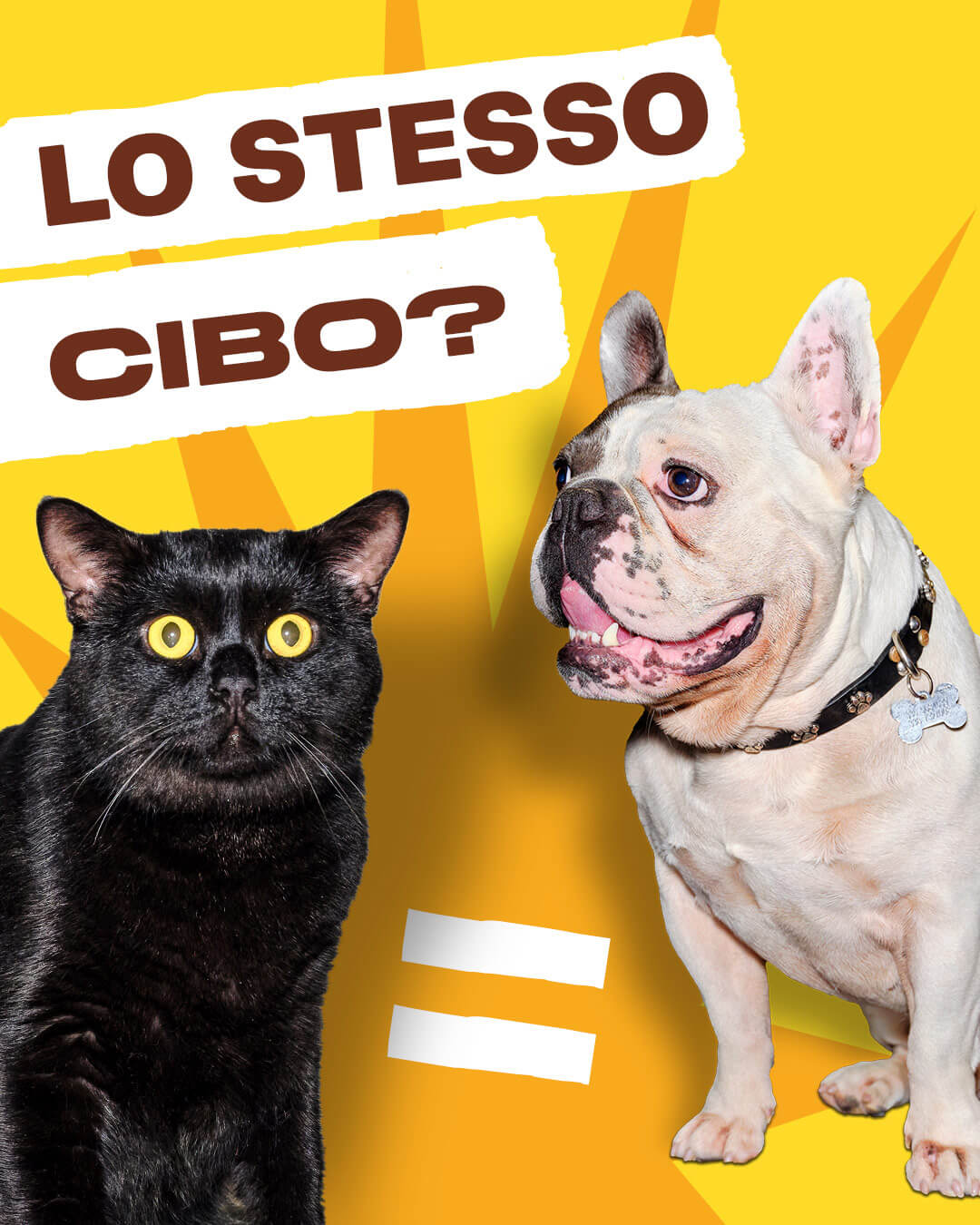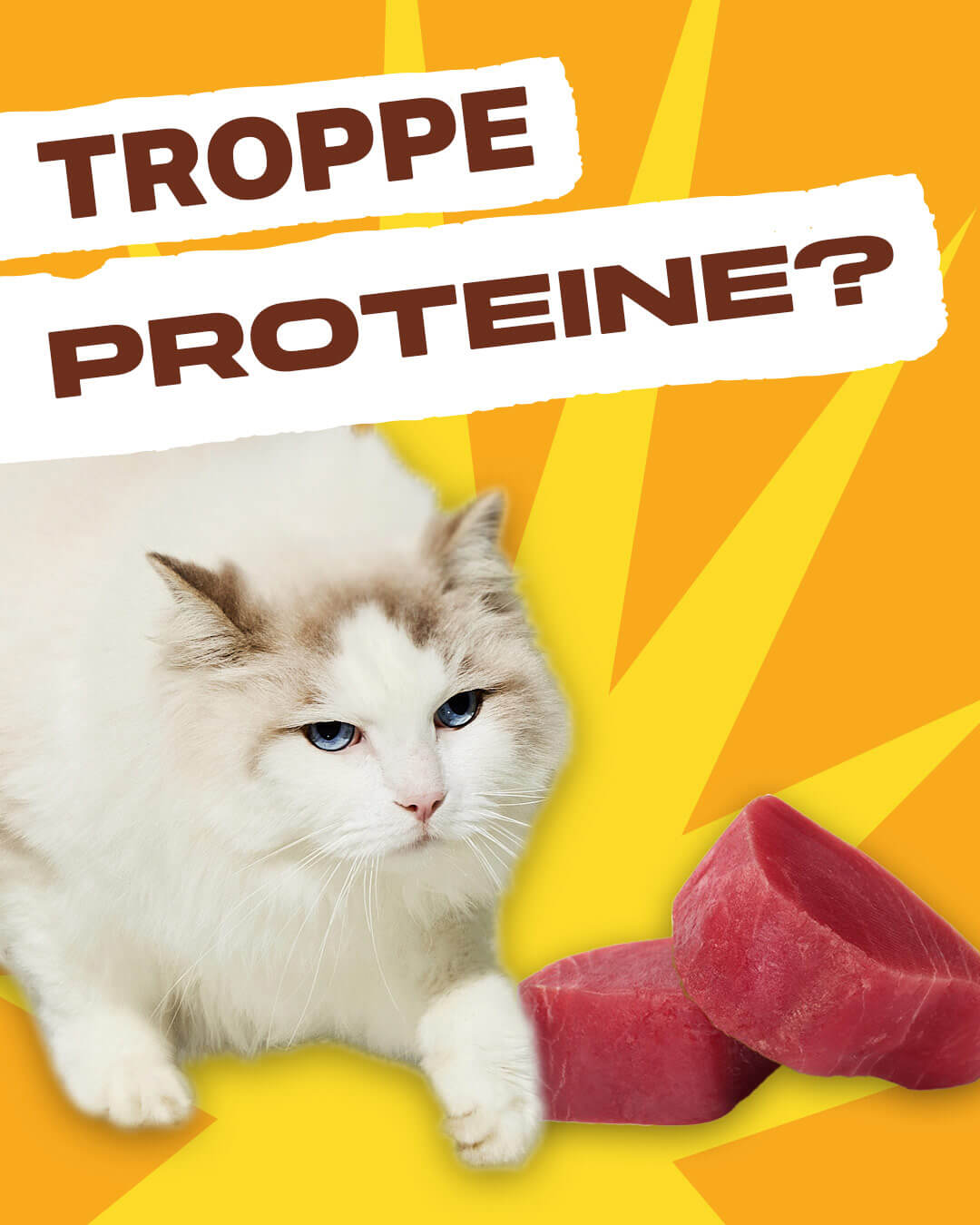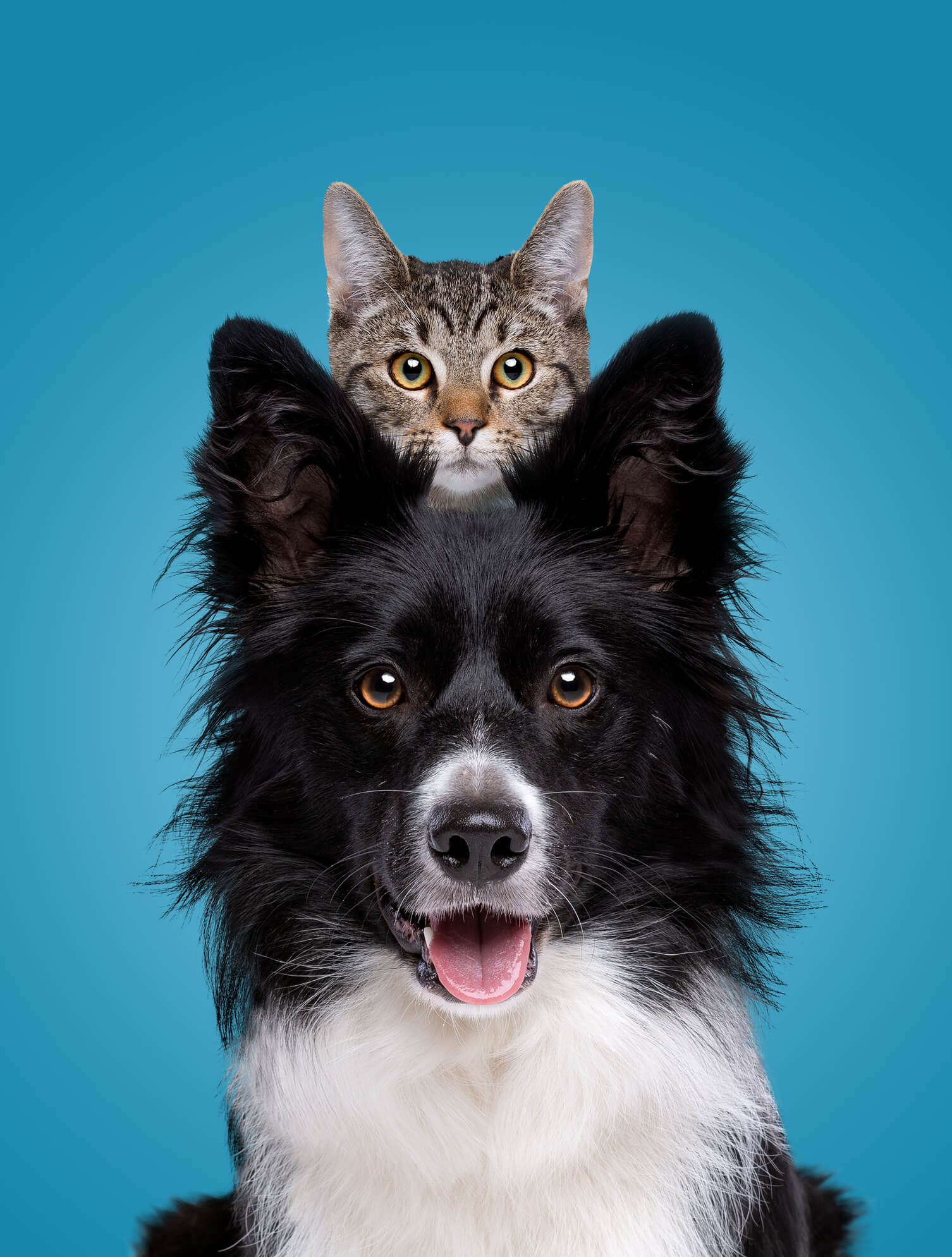A COMPLEMENTARY FOOD IS NOT A SNACK-IT IS FOOD!
You’ve surely happened to choose a wet food from the shelves of a pet store or within an online store and not know how to decide among the multitude of varieties, tastes and textures–and wording!
Yes, because among the types of wet foods available to compose a complete and balanced diet are COMPLEX and COMPLEMENTARY foods. And to complicate matters comes the web, where we read more and more that complementary foods should only be used as snacks!
COMPLETE AND COMPLEMENTARY FOR DOGS AND CATS–WHAT ARE THE DIFFERENCES!
But what are the differences and what should we pay attention to when choosing them?
A food is defined as COMPLETE when a balanced and correct supply of energy and nutrients is achieved by administering in adequate amounts of that one reference: it thus contains within it the right amount of protein, fat, minerals and vitamins needed to meet an animal’s minimum and essential needs.
When we find the COMPLEMENTARY type, on the other hand, we must remember that it is an unbalanced food, thus deficient in some nutrients and in excess of others. It is important to correctly combine that feed with others in order to achieve and meet the same requirement as before. The ultimate complementary food is the can, or sachet, of wet food.
WHY COMPLENTARY FOODS ARE NOT SNACKS
Is it therefore a more inconvenient or complicated food to use? Or is it considered as a snack, or a snack, rather than a real meal? Absolutely not! On the contrary, complementary foods are very important because they facilitate the administration of a varied diet. In fact, it is much easier to change the taste of a can than a bag of kibble once opened. And switching foods allows for a rich variety of nutrients, providing an additional supply of certain substances, which are necessary and useful for the animal itself and its gut microbiota.
The gut microbiota is the set of “good bacteria” in the gut of every living being, which feeds on what is provided through the diet and, under balanced conditions, provides for the well-being and harmony of the entire organism through complex and delicate regulatory mechanisms.
A healthy microbiota will contribute to the all-round health of our animal and can also be ensured through dietary variability that also makes its composition varied, qualitatively and quantitatively.
OTHER BENEFITS OF A MIXED DIET
The inclusion of convenient complementary wet food formats, to be combined with a complete diet, brings other numerous benefits, in addition to facilitating a varied diet, for dogs and cats:
- Lower risk of excess Kcal (and consequent overweight).
- Increased water intake, in the case of complete foods in dry format alongside. In fact, a wet food contains an average of 70 percent wet versus 8-10 percent dry food. And, especially in cats, low fluid intake has important consequences
- Complementary wet foods can be made from quality meat or exits, a source of very important noble proteins.
However, it is important that these are included in a daily diet in a balanced manner designed to supplement the nutrients provided, to vary the taste or substrates of the microbiota: Stick to the suggested dosages to avoid excess calories, however possible, combine them with whole foods or other complementary ones that provide the missing nutrients to ensure proper intake from the standpoint of essential requirements as well.
COMPLEMNTARIES AS PREY
Therefore, be careful not to use them as snacks or “meal breakers” as they are real meals, especially for the cat who needs small frequent meals, it is a safe way to ensure a varied diet similar to its nature.
Just as in nature, the cat’s small prey do not always contain all the nutrients but supplement each other to provide what are amino acids, fatty acids, vitamins and minerals needed by felines but not present in equal amounts in all prey. In fact, the feral cat is able to ensure a balanced and varied intake through prey of a different nature, so for the domestic cat we can also simulate this tendency by using complementary foods within their dietary routine.
Dr. Alessandra Calini
Veterinary physician with expertise in nutrition









